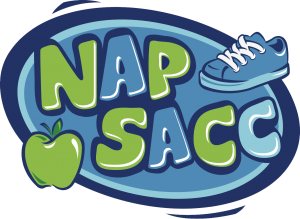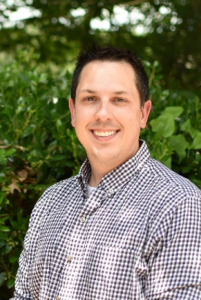Dr. Erik Willis, PhD, MPH, has received a grant from the Alzheimer’s Association to pilot a multi-level intervention that aims to increase physical activity for individuals in adult supervised care settings (ASC) such as adult care homes and adult day cares.
 Dr. Willis is a research scientist with the UNC Center for Health Promotion and Disease Prevention and works with the Children’s Healthy Weight Research Group on the Go NAPSACC project. Combining scientific research and expert opinion, Go NAPSACC is an online, interactive tool that provides care settings with step-by-step guidance with the goal of improving the health and well-being of those in their care.
Dr. Willis is a research scientist with the UNC Center for Health Promotion and Disease Prevention and works with the Children’s Healthy Weight Research Group on the Go NAPSACC project. Combining scientific research and expert opinion, Go NAPSACC is an online, interactive tool that provides care settings with step-by-step guidance with the goal of improving the health and well-being of those in their care.
Developed 20 years ago, Go NAPSACC has primarily been used in child care settings to increase healthy behaviors for children. The program has seen considerable success in its initiative and has been identified as having the best evidence for impact on early childhood obesity risk among interventions compared to similar initiatives. In 2012, the White House Task Force on Childhood Obesity chose Go NAPSACC as one of its three recommended programs to combat childhood obesity.
Dr. Willis plans to adapt the Go NAPSACC program and implement it in ASCs to promote physical activity for older adults. Physical activity is an important factor in the well-being of older adults, who often experience a steady decline in physical activity while staying in ASCs. Physical activity can improve both functional ability and mobility as well as cognition for older adults, but less than 10 percent of individuals in ASCs meet the recommended amount of daily physical activity. This lack of physical activity is a risk factor for Alzheimer’s and other dementias in older adults.

“There is strong evidence that the environment we live in impacts our health well-being including being physically active,” Dr. Willis said. “An ASC-wide approach (e.g., Go NAPSACC) shifts the focus from the individual to the ASC environment, enhancing the potential for adoption, reach, and sustainability.”
In line with priorities outlined by the Alzheimer’s Association and the National Institute on Aging, this project will fill a gap in research surrounding physical activity practices in ASCs, an area that has not been studied in depth. In addition to contributing to the literature on physical activity interventions, this project will begin to develop a physical activity promotion program that could easily be used across ASCs nationwide.
The project will consist of two phases. In the first phase, Dr. Willis will work to adapt Go NAPSACC for use in ASCs following guidance from experts, ASC directors and staff, and adults in their care. Once Willis has finished tailoring the Go NAPSACC program to the needs of older adults in ASCs, he will help implement the program and test its feasibility and initial effectiveness in phase two.
Dr. Willis aims to complete this project by 2024.
Erik Willis, PhD, joined HPDP in 2019 as a research scientist with the Go NAPSACC project, part of the Children’s Healthy Weight Research Group. Prior to joining HPDP, he received his doctorate in exercise physiology from the University of Kansas and a Master of Public Health in epidemiology and biostatistics from Yale University and completed a postdoctoral fellowship with the National Cancer Institute.
